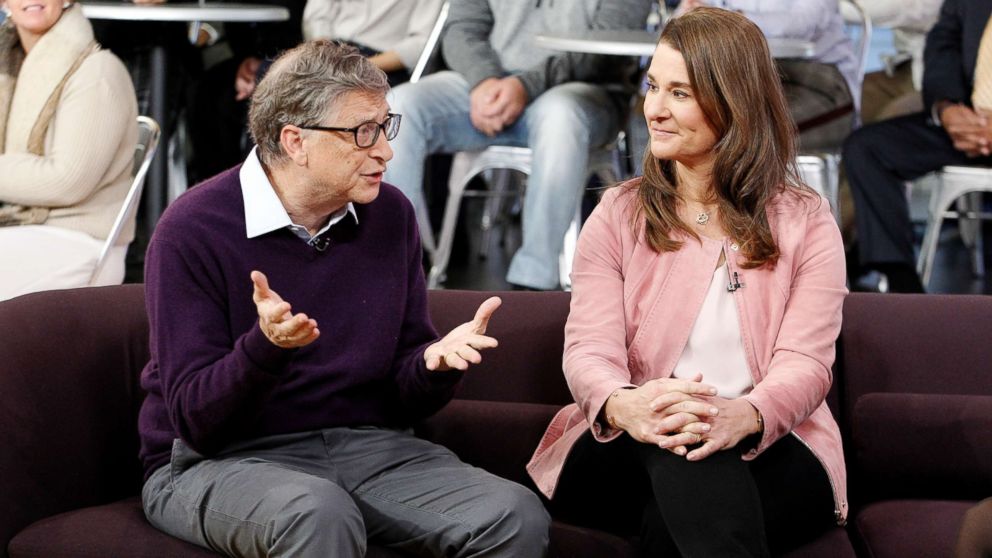


Bill and Melinda Gates have tackled some of the biggest problems in the world -- from poverty to education and health care -- through their multibillion-dollar Bill and Melinda Gates Foundation.
And the couple of 25 years is not afraid to tackle the hard topics at home with each other either, Melinda Gates said.
Bill and Melinda Gates Urge Teens to ‘Get Involved’ in Annual Letter"I don’t think either of us is afraid of a little bit of grist in the conversation because that’s how you get better," she said today on "Good Morning America" in response to a viewer's question asking what the couple's "arguments are like." "Sometimes one of us will learn something first, we’ll see it out in the field in Africa or we’ll read something, and so we bring that to the conversation but always with that shared goal in mind.
"We agree on the broad goals of where we’re going as a couple with this foundation so that’s first and foremost," Melinda Gates said. "We always have that in mind."
The Gates, the parents of three children, today released their foundation's annual letter, a publication that outlines the goals of their philanthropic organization.
To mark the letter's 10th anniversary, the Gates this year chose to answer the 10 toughest questions they're asked by the public, taking on their influence, achievements and the political climate.
"We thought the 10th anniversary, we get asked these tough questions and we are super ambitious for the world -- I mean, we want children to survive and thrive -- but these kinds of questions pressure-test for us the work that we’re doing, pressure-test our optimism," Melinda Gates, 53, explained.
"And I think they help us be more transparent and take people on the learning journey that we’ve had during this time."
The Seattle-based Bill and Melinda Gates Foundation employs more than 1,400 people and has distributed $41.3 billion in grants since its inception in 2000, according to its website.
In the annual letter, Bill and Melinda Gates write that despite headlines of political divisions, violence and natural disasters, "We see a world that's getting better."
"Compare today to the way things were a decade or a century ago. The world is healthier and safer than ever," they write. "The number of children who die every year has been cut in half since 1990 and keeps going down. The number of mothers who die has also dropped dramatically. So has extreme poverty—declining by nearly half in just 20 years. More children are attending school. The list goes on and on."
Bill Gates, 62, explained that being optimistic, and objective, about the state of the world helps them solve problems faster.
"Being objective about the progress the world has made, whether it’s less violence in the United States or childhood deaths going down, that allows us to see the exemplars, the heroes, the innovation and actually drive that progress even faster," he said today.
Bill Gates hopes the next generation of young people is both inspired by the innovations of today and looking ahead to the problems of tomorrow, he added.
"I hope you can see strong models and look at how the miracles of science, the miracles of non-profit organizations, the frontiers of curing disease, letting people communicate in new ways, that you get to drive that to a new level," he said.
"The new generation has a lot of problems to solve so I’m excited that you’ll step up and see that our generation solved some problems but we left plenty for you to work on."
Melinda Gates, who travels the world with her husband for their humanitarian work, said she stays optimistic partly by witnessing all that humans have in common.
"If you travel as much as I’m lucky to do, you see the commonality we have as human beings," she said.
"When you see a mom and a dad who care as much for that child and want to educate them as much as we do in the United States and for them to grow up, not just healthy but thrive and reach their full potential, those are our shared human values."